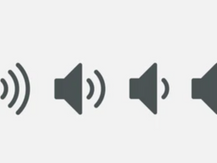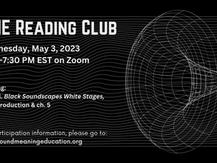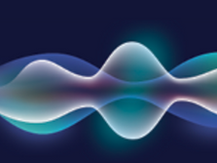SME 25: CONVERSATIONS & improvisations
Conference Theme: Sound and Physicality
Kitt School of Music | Northern Arizona University | September 19-21, 2025
Proposal Deadline: April 15, 2025 | Extended to May 1, 2025
Keynote: Dr. Victoria Netanus Xaka
Featured Artist: Dr. Chad Hamill/čnaq'ymi
SME | CfP (Call for Proposals)
Sound, Meaning Education (SME) invites researchers, artists, and teachers to submit proposals for an in-person conference to be held at Northern Arizona University, September 19-21, 2025. The conference will gather all those interested in sound frameworks/perspectives to share research/scholarship, pedagogical strategies, narratives/stories, performances, and imaginings for the purpose of building infrastructures that support sound and meaning explorations within teaching and learning contexts.
As an organization, SME responds to and is part of: 1) the sensory turn in the academy, 2) recent technological and experiential shifts in how music and sound are created/heard/disseminated, and 3) the re-orienting of human existences toward developing resonant, equitable, and sustainable practices (SME Guiding Statement). The 2025 conference continues in these veins via a partnership with Southwest Collaborative Music Convergence, to be held concurrently with SME 25, in Flagstaff, AZ.
This year, we invite participants to relate their work to the theme of sound and physicality, including embodiment, environment, and ecological concerns. We encourage proposals/projects of all methodologies; please be specific in that regard. Three session types will comprise the conference schedule: research talks (15 min + 10 min Q&A), interactive workshops (45 min), and performances (45 min). Proposal topics include, but are not limited to:
-
Pedagogical encounters in/with sound and improvisation thereof. (PK-16, community-based programs, etc.)
-
Creative and critical intersections between sound, music, improvisation and education.
-
Ecological/relational impacts of human engagements with sound/music/technology
-
Sensuous scholarship and phenomenological studies centered around sound, improvisation, and pedagogy.
-
Embodied and cognitive processes with sound/music.
-
Sound/music narratives and narrative inquiries in music/sound learning contexts.
-
Multi-sensorial engagements with sound/music as related to inclusivity and disability studies, and/or other areas of inquiry.
-
Social and political structures that inform and constitute sound/music experience and sound/music pedagogies.
-
Philosophy of sound and music as related to technology, identity, the environment, and/or education.
Proposals should include the following:
-
Proposal type: Research Talk, Interactive Workshop, or Performance
-
500-word summary (PDF)
-
100-word bio (PDF)
-
Optionally, one additional media file may be submitted for workshop and performance proposals
-
Requests for technical equipment (beyond standard classroom audio/visual), if any. We may or may not be able to provide requested equipment, and will communicate with participants to (hopefully) find workable solutions.
-
A handful of remote/zoom proposals may be accepted, based on accessibility and other considerations. Please indicate your intention to present in-person or otherwise with explanation.
Submit to jashen edwards and Rebecca Rinsema at soundmeaningeducation@gmail.com by May 1, 2025.
Proposals will be reviewed according to:
1. Objectives or purposes as they relate to the conference theme(s)
2. Perspective(s) and/or theoretical framework
3. Methods, techniques, and/or modes of inquiry
4. Data sources, evidence, objects, and/or materials
5. Results and/or substantiated conclusions or warrants for arguments/point of view
6. Scientific, scholarly, artistic, and/or pedagogical significance of the project


















